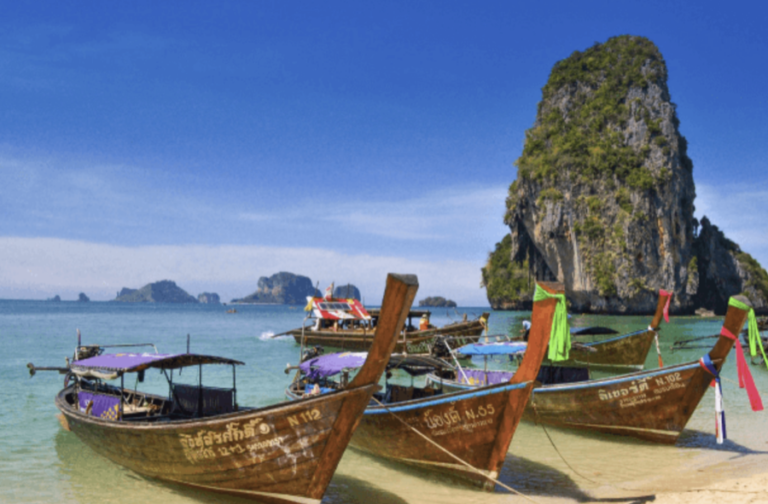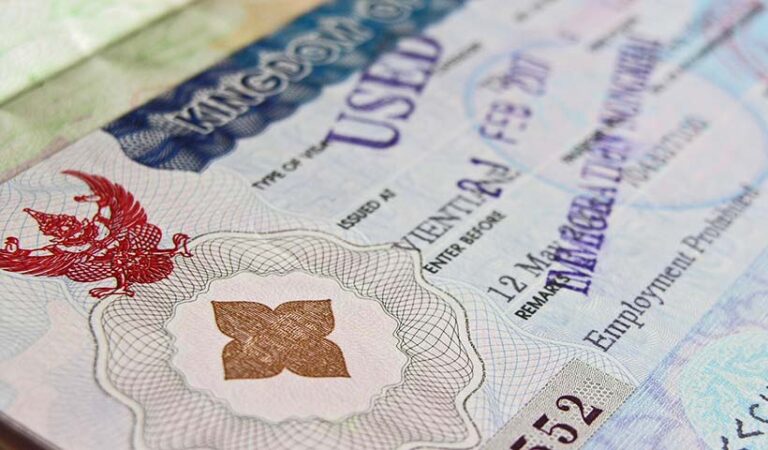Can Thai Privilege Visa Holders Buy Property in Thailand? – Thailand Elite Visa Resource Center
Navigating the property market as a Thai Privilege Visa holder can present unique challenges and opportunities. The Thailand Elite Visa Resource Center offers an invaluable guide for those seeking to understand their property ownership rights within Thailand.
This professional resource provides a detailed examination of the legal framework governing the purchase of condominiums, which is often the most viable option for foreign buyers. It further discusses the complexities surrounding land ownership and the potential for long-term lease arrangements.
By outlining the procedural steps for property acquisition and emphasizing the importance of legal assistance, such as that provided by our team, this guide is an essential tool for Thai Privilege Visa holders contemplating real estate investments in Thailand.
Key Takeaways
- Thai Privilege Visa holders have the same rules and regulations as other visa options for buying property in Thailand.
- Foreigners can purchase condominium units freely, with no restrictions on the number of units or price limitations.
- Foreigners are not allowed to own a plot of land in Thailand, but they can lease land and build and own a house on the leased land.
- We offer legal assistance and expertise for foreigners in buying property in Thailand.
Thai Privilege Visa Overview
The Thai Privilege Visa, also known as the Thailand Elite Visa, is a special type of visa designed to attract affluent visitors by offering various long-term stay options in Thailand.
In terms of property ownership, the Thai Privilege Visa provides no distinct advantages over other visa options. Unlike other visas that may require frequent renewals and adherence to specific conditions, the Thai Privilege Visa benefits include extended validity and minimal immigration formalities, offering a more convenient residential solution.
However, when it comes to purchasing property, all foreigners, regardless of their visa type, encounter the same legal framework. They can freely acquire condominiums within the prescribed foreign ownership quota, while land ownership remains restricted.
A comparison with other visa options underscores the Thai Privilege Visa’s residential perks, but parity in property acquisition rules.
Condominium Purchase Guidelines
Condominium acquisition guidelines for Thai Privilege Visa holders align with general foreign investment policies, allowing for straightforward property purchases within the designated foreign ownership quota.
Adhering to foreign ownership regulations, these individuals may acquire condominium units, provided foreign nationals do not exceed 40% of the property’s total ownership.
The benefits of buying a condominium in Thailand include ease of transaction and the ability to own freehold property, a privilege not extended to land purchases. Moreover, owners are permitted to rent out their units, presenting an opportunity for investment returns.
It is crucial to ensure that all financial transactions comply with Thai law, involving the remittance of foreign currency and conversion to Thai Baht within the country, reinforcing transparency and legality in the property acquisition process.
Restrictions on Land Ownership
Land ownership regulations in Thailand strictly prohibit foreigners from owning freehold plots, presenting a significant limitation for Thai Privilege Visa holders and other non-Thai residents. Despite the Thai Privilege Visa advantages, such as long-term residency and other entitlements, the benefits do not extend to land acquisition.
Foreigners, irrespective of their visa status, are permitted to lease land for a period of up to 30 years, which may be renewable for an additional term. However, this leasehold approach does not confer ownership rights equivalent to freehold tenure.
When considering property investment in Thailand, Thai Privilege Visa holders often turn to condominium purchases, a sector where foreign ownership is less restrictive and offers a more accessible pathway to property acquisition within the Kingdom.
Leasing Land in Thailand
Transitioning from the topic of condominium ownership, we delve into the specifics of leasing land in Thailand, which offers a viable alternative for Thai Privilege Visa holders seeking property investment opportunities.
While buying land in Thailand outright is not permissible for foreigners, long-term leasing remains an attractive option for investing in Thai real estate. Leases can be secured for periods up to 30 years, with the possibility of extension, allowing for substantial investment horizons. This period often suffices for those looking to build and occupy a residence.
Precise legal frameworks govern these leases, ensuring security and clarity for all parties involved. It is advisable, however, to engage with reputable legal counsel to navigate the complexities of Thai property law and secure a lease that aligns with investment goals.
Property Purchase Procedure
When you embark on the journey to purchase property in Thailand, the initial step involves selecting your desired property and placing a down payment to secure the unit.
Subsequently, property financing options must be considered, as Thai banks rarely grant loans to non-residents. It is therefore crucial to have your financing plans in order before proceeding.
Once the financials are settled, the property registration process begins. This includes verifying the title deed and preparing the necessary documentation, a task typically handled by a legal representative to ensure accuracy and compliance with Thai law.
The final stage concludes with the official transfer of ownership at the Land Department, where all relevant fees and taxes associated with the property purchase are settled.
Maintenance and Co-Ownership
Upon acquiring a condominium in Thailand, every co-owner is obligated to contribute to the Common Area Maintenance Fee (CAM Fee), which ensures the upkeep and proper management of shared facilities.
The allocation of these maintenance fees and co-ownership responsibilities are crucial for the harmonious living and value preservation of the property.
Below are key points regarding the maintenance and co-ownership:
- CAM Fees cover cleaning, security, and maintenance of common areas.
- Payment schedules for CAM Fees are typically outlined in the condominium’s juristic person regulations.
- Co-ownership responsibilities include adhering to the building’s rules and regulations.
- Non-payment of CAM Fees can result in penalties or legal action.
- Co-owners have a say in the management decisions during general meetings.
Legal Services for Buyers
Navigating the complexities of property acquisition in Thailand, our experienced property legal team offers indispensable assistance to foreign buyers. They provide a comprehensive service that ensures the property buying process is conducted with due diligence and adherence to Thai laws.
Utilizing legal assistance can significantly mitigate risks, clarifying legal jargon and ensuring that all documentation is in order. The benefits of legal assistance are manifold; it offers peace of mind, facilitates a smoother transaction, and provides a safeguard against potential legal pitfalls.
Expert lawyers guide clients through each step, from the initial reservation agreement to the final transfer of ownership. Our qualified team ensures that all aspects of the purchase align with Thai property regulations, delivering an authoritative and secure investment experience for foreign nationals.
Frequently Asked Questions
If I Purchase a Condominium in Thailand as a Thai Privilege Visa Holder, Will This Impact the Length or Terms of My Visa?
Purchasing a condominium in Thailand does not affect the length or terms of your Thai Privilege Visa. Ownership rights are independent of visa renewal processes in this context.
Can Thai Privilege Visa Holders Benefit From Any Tax Incentives or Reductions When Purchasing Property in Thailand?
Thai Privilege Visa holders navigating the landscape of property acquisition face uniform tax implications, with no exclusive incentives. Ownership structures for them align with general foreign investment frameworks, ensuring equitable fiscal responsibilities.
Are There Any Specific Locations in Thailand Where Thai Privilege Visa Holders Are Encouraged or Discouraged From Buying Property?
Thai Privilege Visa holders are subject to the same foreign ownership and zoning regulations as others, without specific encouragement or discouragement regarding property locations in Thailand.
How Does the Process of Selling Property in Thailand Differ for Thai Privilege Visa Holders Compared to Other Foreign Nationals?
The process of selling property in Thailand does not differ for Thai Privilege Visa holders; all foreign nationals are subject to the same property ownership and legal differences regarding real estate transactions.
Is There a Community or Support Network Specifically for Thai Privilege Visa Holders Who Own Property in Thailand to Share Experiences or Advice?
There is no exclusive community specifically for Thai Privilege Visa holders in property ownership for experience sharing or community building, but general expat networks in Thailand may offer such support and information exchange platforms.
Conclusion
In the realm of property acquisition in the Kingdom of Thailand, the Thai Privilege Visa emerges as a beacon of opportunity for foreign nationals. However, the path to ownership is strewn with stringent regulations and intricate legalities, necessitating astute navigation.
The involvement of expert legal advisors, such as those from our team, becomes not merely advisable but paramount, ensuring a fortress of security amidst the tumultuous seas of property investment for the prudent and discerning elite investor.







